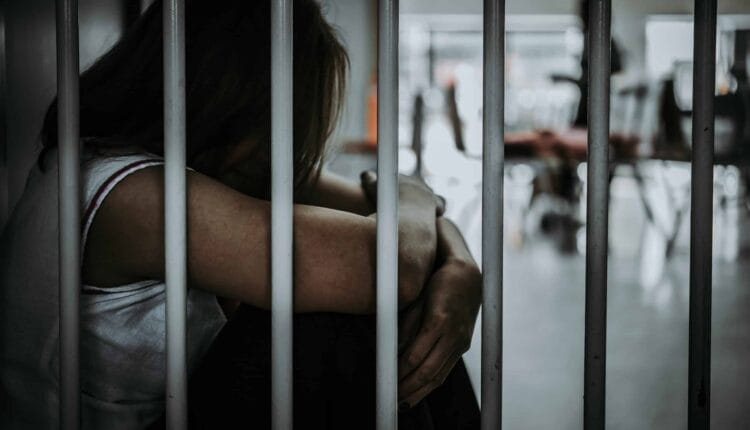A Call for Mass Clemency for Incarcerated Women – Women’s eNews

Michigan Governor Gretchen Whitmer recently announced her economic priorities, which includes a focus on fixing roads and support for the auto industry. Governor Whitmer, a potential 2028 presidential candidate, has stood out as a champion of women’s rights throughout Michigan and the nation.
However, not all of Michigan’s women have been included in her efforts to protect women’s rights, create more safeguards for LGBTQIA+ people, and interrupt cycles of physical and sexual violence that disproportionately impact women and girls.
Prisons threaten women’s rights everywhere. Michigan stands as a glaring example of this systemic failure, with one of the highest numbers of women serving life sentences in the nation. Governor Whitmer has the power to liberate women who have suffered serious sexual and physical violence throughout their lives. She can use sweeping clemency action to free women from punishments that mimic the very violence they endured prior to and within prison.
Nearly 200 women in Michigan are impacted by life sentences. Additionally, more than 200 women are serving 20-year minimums or more. This means over 400 women serving long or life sentences have little access to rehabilitative programs, education or therapy, because people must be near their release dates to qualify for many programs.
Up to 90% of women sentenced to prisons in the US are survivors of sexual and physical violence, either in childhood, adulthood or both. Further, 42% of women in US prisons identify as lesbian or bisexual, highlighting another layer of societal marginalization. In Michigan, 132 of women serving long sentences are 40 years or older and have served 20 or more years in prison.
Harm does not happen in a vacuum. People do not wake up one day and decide to cause pain and suffering. However, when people are exposed to sexual abuse, violence or other traumas in the home, in school, on the streets, or in places of worship, and when these traumas are left unattended, cycles of harm inevitably follow.
Their only paths to release are clemency, rare case specific court rulings in their favor, or legislative action—such as adopting Second Look policies. Second Look provisions would allow individuals to petition for resentencing after serving 20 years, providing a mechanism for eventual parole eligibility.
President Biden recently demonstrated the value of acknowledging and addressing systemic wrongs by granting 1,500 clemencies. Moreover, his recent public demonstration of mercy for his own son reflects a powerful message about redemption and second chances.
Unfortunately, Michigan’s Democratic leadership has failed to listen to directly impacted leaders, with varied and robust expertise, to develop comprehensive criminal justice reforms rooted in healing, restoration, and safer communities. Instead, current leadership has allowed policies that perpetuate harm. Over the past six years, Executive decisions regarding prison administration have only increased repression, abuse, and control within these institutions.
For more than two decades, I have worked with individuals in prison and facilitated programs for incarcerated women. Time and time again, when women are asked to share their common experiences in class, every participant discloses surviving rape or sexual assault at some point in their lives.
Many of these women—whose offenses are often directly linked to their unaddressed trauma—struggle to access meaningful mental health care while incarcerated. At best, women who win the long fight for therapy receive only half an hour of treatment every 4 to 6 weeks. The women’s prison has chronic staffing shortages, currently a 31.8% vacancy rate and instead of implementing creative care programs, MDOC is scrambling to recruit and retain staff.
By ignoring people caught in the criminal legal machine, Democrats have further alienated a potential base, and they have strayed from some of the platforms central to their values: Women’s rights, LGBTQIA+ rights, racial justice and economic equality.
Michigan’s use of long-punishment not only disrupts existing families and creates intergenerational trauma, but also impedes reproductive rights. Many women who went to prison at very young ages, 18-25, are now ages 45 to 75. The state has taken away their ability to bear and raise children.
Beyond family separation, the prison system itself replicates the dynamics of interpersonal and domestic violence: daily pat downs, invasive strip searches, proliferation of illicit substances on grounds, seclusion, punitive sanctions for trauma-related behaviors, wrist and ankle shackling during hospital transport and at outside hospital, told when to move and when not to move, and limited access to fresh air, exercise, and nutritional food.
Michigan’s women’s prisons also have a disturbing history of systemic sexual violence perpetrated by staff against the very women and non-binary individuals in their care. These past violations, combined with the current daily realities of imprisonment, demonstrate that prisons function as abusers. They control, punish, and retraumatize the very individuals they claim to rehabilitate.
For those leaders who seek to build meaningful connections with historically overlooked communities and advocate for redemption and healing, the time to act is now. Governor Whitmer should prioritize legislative and executive strategies to reduce Michigan’s long-serving prison population, specifically women. She has the power to invoke mass clemency and liberate deserving, rehabilitated women who pose no risk to public safety and who can contribute meaningfully to our communities. These women are survivors. They have demonstrated resilience and transformation despite being trapped in an abusive system. Granting clemency can restore hope, affirm the humanity of these women, and take a critical step toward justice. The time for mercy is now.
About the Author: Natalie Holbrook-Combs is Program Director of the American Friends Service Committee’s Michigan Criminal Justice Program and Fellow with the Op-Ed Project’s Public Voices on Transformative Justice.

